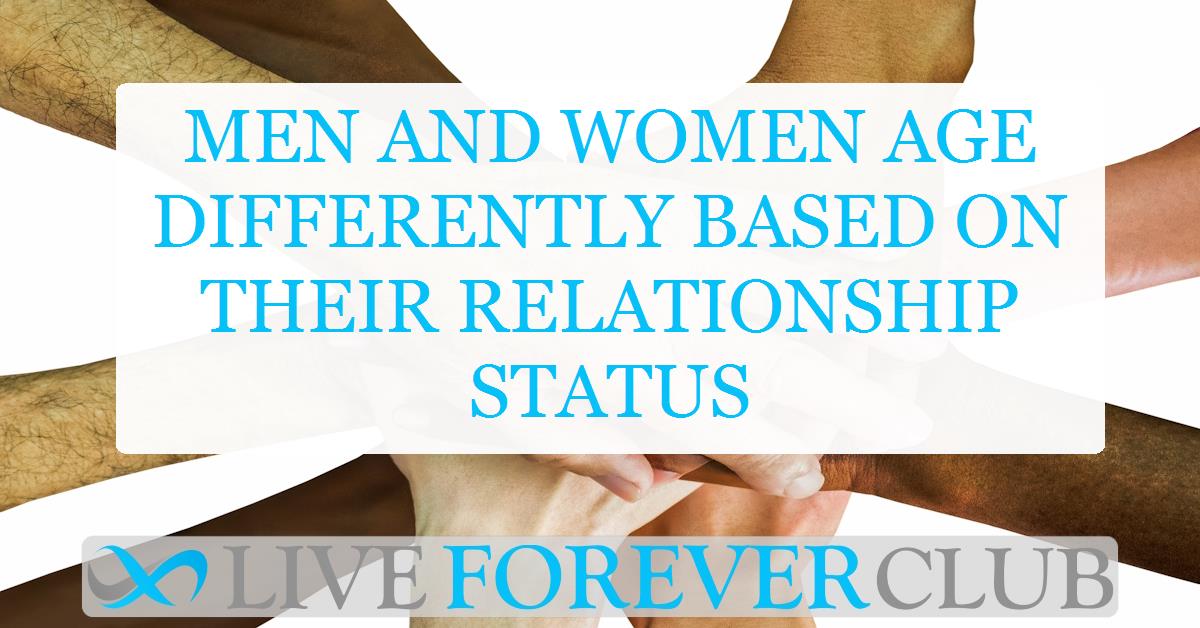Ageing is an inevitable part of life, and how we age can significantly affect our quality of life. The concept of "successful ageing" has gained considerable attention in gerontology, highlighting the importance of maintaining physical, mental, and social well-being in later years. But what factors contribute to ageing successfully? One crucial aspect that has been extensively studied is marital status.
The association between marital status and successful ageing varies by sex, as demonstrated in a recent study titled "The Association Between Trajectories of Marital Status and Successful Aging Varies by Sex: Findings from the Canadian Longitudinal Study on Aging (CLSA)."
This study sheds light on how marital trajectories influence successful ageing differently for men and women, offering valuable insights for social work and policy development.
Understanding Successful Ageing
Successful ageing is a multidimensional concept that encompasses more than just physical health. It includes psychological and social well-being, life satisfaction, and the ability to engage in meaningful activities.
The term "successful ageing" was popularized by Rowe and Kahn in the late 1980s, who defined it as the absence of disease and disability, high cognitive and physical functioning, and active engagement with life. However, this definition has been criticized for being too narrow and not reflecting the realities of most older adults, many of whom live with chronic conditions.
In response to these criticisms, researchers have proposed broader definitions of successful ageing. For instance, Young et al. (2009) introduced a multidimensional model that acknowledges the coexistence of chronic illness and successful ageing.
They argued that successful ageing is possible even in the presence of physical limitations, provided that individuals have the psychological and social resources to cope. This broader perspective aligns with the experiences of many older adults who perceive themselves as ageing successfully despite having health issues.
Marital Status and Ageing
Marital status has long been recognized as a significant determinant of health outcomes in older adults. As early as 1858, British epidemiologist William Farr noted that unmarried people had higher mortality rates than their married counterparts. Subsequent studies have consistently shown that marriage positively affects health behaviors, mental health, and longevity.
Married individuals are more likely to engage in healthy behaviors, have better access to healthcare, and experience lower levels of stress and depression. Moreover, marriage provides a source of social support, which is crucial for mental and emotional well-being.
However, the impact of marital status on health is not uniform across different demographic groups. For instance, the benefits of marriage are often more pronounced for men than for women. Men tend to gain more from the social and emotional support provided by marriage, while women may experience additional stress from caregiving responsibilities.
The effects of marital status also vary depending on the quality of the marriage. A supportive, happy marriage can promote successful ageing, whereas a troubled marriage can have the opposite effect.
The Study: Canadian Longitudinal Study on Ageing (CLSA)
The Canadian Longitudinal Study on Aging (CLSA) is a comprehensive, national, population-based study that follows nearly 50,000 adults aged 45 to 85 years for 20 years.
The study collects data on various aspects of ageing, including physical, mental, and social health, and provides valuable insights into the factors that contribute to successful ageing. The CLSA is particularly well-suited for studying the impact of marital status on ageing because it includes detailed information on participants' marital histories, health status, and social support networks.
This study, led by Mabel Ho and her colleagues, focused on a subset of 7,641 older Canadians who were classified as "ageing successfully" at the baseline wave of the CLSA.
The researchers used binary logistic regression analyses to examine the association between trajectories of marital status and successful ageing, with a particular focus on sex differences. The study's findings have important implications for understanding how marital status influences ageing outcomes and for developing targeted interventions to support older adults.
Methodology
The study's methodology involved analyzing data from the baseline and follow-up waves of the CLSA. Participants were categorized based on their marital status at both time points, allowing the researchers to identify trajectories of marital status, such as continuously married, continuously widowed, continuously divorced or separated, and transitions into or out of marriage.
The primary outcome of interest was successful ageing, defined as the absence of limitations in activities of daily living (ADLs), no chronic disabling pain, no mental health issues, adequate social support, and a positive self-rated ageing process.
To account for potential confounding factors, the researchers included 21 baseline characteristics in their analyses, such as age, sex, education, income, lifestyle behaviors, and health status.
They conducted three binary logistic regression models to assess the association between marital status trajectories and successful ageing. The first model included only marital status trajectories, the second model added age and sex, and the third model adjusted for all baseline characteristics. The researchers also tested for interaction effects between marital status and sex to determine whether the associations differed by gender.
Key Findings
The study's findings revealed significant associations between marital status trajectories and successful ageing, with notable differences between men and women. Continuously married older adults had the highest odds of ageing successfully, followed by those who became married between the baseline and follow-up waves. Interestingly, the benefits of marriage were more pronounced for men than for women.
For men, almost every marital trajectory was associated with higher odds of successful ageing compared to never-married individuals. Men who were continuously married, continuously widowed, or became married since baseline had significantly higher odds of ageing successfully. In contrast, continuously divorced or separated men did not have significantly higher odds of successful ageing compared to their never-married counterparts.
For women, the association between marital status and successful ageing was less pronounced. Continuously married women had slightly higher odds of ageing successfully, but the difference was not statistically significant.
The only significant finding for women was that those who transitioned from married to not married between the waves had lower odds of ageing successfully compared to their never-married peers. This suggests that the disruption of marriage through widowhood, divorce, or separation may have a more detrimental impact on women’s ageing process.
Discussion
The study's results underscore the importance of considering sex differences in the relationship between marital status and successful ageing. While marriage appears to offer significant protective effects for men, the benefits are less clear for women.
This could be due to various factors, including the different roles and expectations placed on men and women in marriage. Men may benefit more from the social and emotional support provided by marriage, while women may experience additional stress from caregiving responsibilities and household management.
The finding that widowhood, divorce, or separation negatively impacts women's successful ageing highlights the need for targeted interventions to support older women who experience these transitions.
Social work programs could focus on helping these women rebuild their social support networks and access mental health services. Additionally, policies that provide financial and social support to older adults, particularly women who experience marital disruptions, could help mitigate the negative effects of these transitions on successful ageing.
The role of social isolation in ageing also emerged as a significant factor in this study. Older adults who were not socially isolated had higher odds of ageing successfully, regardless of their marital status.
This finding aligns with previous research that highlights the importance of social connections in promoting mental and physical health in later life. Social work interventions that encourage social participation and help older adults maintain strong social ties could play a crucial role in promoting successful ageing.
Implications for Social Work and Policy
The findings of this study have important implications for social work practice and policy development. Social workers play a key role in supporting older adults, particularly those who are vulnerable due to marital disruptions or social isolation.
By understanding the impact of marital status on successful ageing, social workers can identify individuals who may be at risk for suboptimal ageing outcomes and develop targeted interventions to support them.
For men, social workers should focus on promoting the benefits of marriage and helping older men maintain strong relationships with their spouses. For women, the focus should be on providing support during and after marital transitions, such as widowhood or divorce. This could involve connecting women with peer support groups, mental health services, and resources for financial stability.
Policy-makers should also consider the findings of this study when developing programs and policies to support successful ageing. Policies that promote social participation and reduce social isolation among older adults could have a significant impact on ageing outcomes.
Additionally, policies that provide financial support to older adults, particularly women who experience marital disruptions, could help mitigate the negative effects of these transitions on successful ageing.
Conclusion
In conclusion, this study provides valuable insights into the relationship between marital status trajectories and successful ageing, highlighting the importance of considering sex differences in this association.
While marriage appears to offer significant protective effects for men, the benefits are less clear for women, particularly those who experience widowhood, divorce, or separation. Social work interventions and policies that support older adults through marital transitions and promote social participation could play a crucial role in promoting successful ageing.
As the population continues to age, understanding the factors that contribute to successful ageing becomes increasingly important. This study adds to the growing body of literature on ageing and provides a strong foundation for future research and practice in this area.
By continuing to explore the complex relationship between marital status and ageing, we can develop more effective strategies to support older adults in ageing successfully and enjoying a high quality of life in their later years.
The study was led by Esme Fuller-Thomson from University of Toronto is published in the journal International Social Work.






